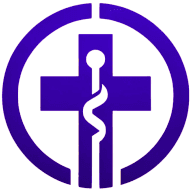8 Challenges in Fully Embracing Personalized Medicine
Personalized medicine holds incredible promise, but there are numerous challenges to its full implementation. This article sheds light on these obstacles, drawing on insights from leading experts in the field. From overcoming data fragmentation to ensuring equitable access, explore the critical steps needed to make personalized medicine a reality.
- Overcome Data Fragmentation
- Address Data Infrastructure Gaps
- Bridge Innovation and Accessibility
- Integrate Data Into Pharmacy Practice
- Provide Targeted Provider Education
- Improve Data Sharing With AI
- Ensure Equitable Access
- Bridge Idealism and Reality
Overcome Data Fragmentation
One of the biggest challenges in fully embracing personalized medicine is data fragmentation. I saw this firsthand when a close family member underwent genetic testing for a medication response issue. The test results sat in a separate system, disconnected from their electronic health records (EHR). Their doctor had no easy way to access or integrate the findings, delaying critical treatment decisions.
Personalized medicine thrives on a complete view of the patient--combining genetics, EHRs, wearable data, and lab results. However, data silos keep this information locked in incompatible systems, making it difficult to provide truly individualized care. AI and machine learning--which could optimize treatments based on this data--are limited by incomplete or biased datasets because these systems don't communicate.
Privacy regulations like HIPAA and GDPR, while necessary, further complicate data sharing. Patients need control over their medical data, but restricting access too much slows innovation. This balance between security and accessibility remains a major hurdle.
One promising solution is blockchain-based decentralized health records, giving patients ownership of their data while allowing secure sharing across providers. Federated learning can also help--AI models can be trained on decentralized datasets across institutions without exposing sensitive information.
Another key step is adopting standardized formats like FHIR (Fast Healthcare Interoperability Resources). If all health systems used a universal format, hospitals, research institutions, and even personal wearables could share data effortlessly.
The biggest barrier to personalized medicine isn't technology--it's data access. The healthcare industry must prioritize interoperability, enabling AI-driven, hyper-personalized treatments that optimize health outcomes. Until then, patients will continue to face gaps in care due to fragmented information--something I've personally seen impact loved ones.

Address Data Infrastructure Gaps
The most significant barrier to personalized medicine isn't technological but infrastructural—specifically, the lack of standardized health data across diverse populations. We still lack comprehensive reference datasets for many groups in the Philippines.
I envision this challenge being addressed through public-private partnerships that incentivize both data standardization and sharing. Governments need to establish clear regulatory frameworks that protect patient privacy while enabling anonymized data utilization for research. Healthcare providers need practical tools that make standardized data collection beneficial to their practice rather than an additional burden.
The potential impact is enormous—through collaborative work with select healthcare providers who have volunteered to conduct initial testing, we've begun to identify patterns that could eventually help develop more tailored treatment approaches. Our partnerships with medical societies for data gathering initiatives are creating the foundation for research that could better represent our diverse population. The future of healthcare lies in these personalized approaches, but we can only get there by building the proper data infrastructure today while maintaining the highest standards of privacy and consent.

Bridge Innovation and Accessibility
One major challenge the healthcare industry must overcome to fully embrace personalized medicine is integrating advanced technology with patient accessibility and affordability. Personalized medicine relies on cutting-edge tools such as genetic testing, AI-driven diagnostics, and tailored treatment plans. However, the costs associated with these innovations, along with disparities in access to care, can create significant barriers for many patients.
From a dental professional's perspective, this challenge is particularly relevant in advanced dental treatments like customized implants, Invisalign®, and biomimetic restorations, which leverage technology to enhance patient outcomes. However, the cost of these personalized solutions can make them less accessible to underprivileged communities, despite their long-term benefits.
To address this challenge, I envision a threefold approach:
1. Expanding Insurance and Financial Assistance Programs - Encouraging broader coverage of personalized treatments through insurance reforms and patient-friendly financing options can make these innovations more accessible.
2. Enhancing Education and Awareness - Educating both healthcare providers and patients on the long-term value of personalized treatments can drive demand and influence policy changes that prioritize affordability.
3. Leveraging AI and Automation to Reduce Costs - As technology advances, increased efficiency in diagnostics and treatment planning can lower costs, making personalized care more scalable across diverse populations.
By bridging the gap between innovation and accessibility, we can ensure that personalized medicine—and dentistry—benefits not just a select few but becomes a standard of care for all.

Integrate Data Into Pharmacy Practice
One major challenge the healthcare industry faces in fully embracing personalized medicine is integrating genetic and individualized treatment data into routine pharmacy practice--without creating barriers for patients or overwhelming healthcare providers.
Right now, personalized medicine relies on genetic testing, biomarker data, and tailored treatment plans, but there are gaps in how this information flows between doctors, pharmacists, and patients. Many community pharmacies aren't equipped to interpret genetic data in real-time, and even when they are, insurers may not cover personalized treatments, making access uneven.
To address this, we need better technology and infrastructure that allows seamless data-sharing between prescribers and pharmacists while keeping it simple for patients. Pharmacists should also have training in pharmacogenomics to help guide medication choices based on genetic factors. Lastly, policy changes are crucial--insurance providers and government programs need to catch up and recognize the cost-saving potential of personalized medicine in the long run.
In short, it's about bridging the gap between cutting-edge science and real-world accessibility. If we get that right, personalized medicine could shift from being an exclusive concept to a standard of care.

Provide Targeted Provider Education
There is a need for more targeted education for healthcare providers. Personalized medicine demands a deep understanding of genetics and pharmacology. Not all medical professionals are prepared for this shift. Continuous professional development and specialized training programs are required. Educating providers will ensure the effective implementation of personalized medicine.
For provider education, medical schools and continuing education programs must evolve. New curricula focusing on genomics and personalized therapies should be developed. Online platforms can offer accessible, ongoing training for current healthcare professionals. Partnerships with academic institutions can facilitate research and learning. Such initiatives will equip healthcare professionals to excel in a personalized medicine environment.

Improve Data Sharing With AI
Biggest problem? Healthcare data is a hot mess. Personalized medicine needs a full picture--genetics, history, lifestyle--but all that info is locked in different systems that don't talk to each other. No connection, no real personalization.
The fix? Smarter AI and better data sharing. Healthcare needs to stop hoarding patient info like a dragon guarding gold and actually build systems that work together. AI can help make sense of it all, spotting patterns humans might miss. Until that happens, personalized medicine is just a buzzword with no real bite.

Ensure Equitable Access
Right now, the ability to tailor treatments to an individual's genetics, lifestyle, and environment is advancing rapidly. But the challenge isn't just scientific--it's who gets to benefit.
Personalized medicine often requires genetic testing, advanced data analysis, and customized treatment plans, all of which come with high costs and limited availability. If these breakthroughs are only accessible to a select few, we risk creating a two-tiered healthcare system where only those who can afford it get the best, most precise care.
To overcome this, we need a shift in both policy and infrastructure. Insurance companies need to cover genetic testing and targeted therapies as standard care, not luxury options. Healthcare systems must invest in AI-driven diagnostics and data-sharing networks to make personalized medicine scalable and cost-effective. Education also plays a role--doctors need training in genomic medicine, and patients need clear, unbiased information about what personalized treatments can (and can't) do.
The future of medicine shouldn't be limited to developing more precise treatments but to also ensure that everyone has access to them. The real breakthrough won't just be in science; it will be in equity--ensuring personalized medicine is not just for the privileged but for all.

Bridge Idealism and Reality
Early in my career, I was fueled by a strong sense of idealism, particularly when it came to improving healthcare. But as I navigated the complexities of the industry—bureaucratic hurdles, systemic inefficiencies—I quickly realized how challenging it could be to turn those ideals into reality. It was discouraging, to say the least, and I found myself questioning whether meaningful change was possible. However, this experience didn’t diminish my aspirations; it refined them. At Carepatron, our goal of democratizing healthcare might seem ambitious, even idealistic, but it’s a vision we’re fully committed to pursuing. We understand the challenges, but we also see the immense potential for positive change. By holding onto those high aspirations and working tirelessly to bridge the gap between idealism and reality, we’re making strides toward a more accessible and efficient healthcare system. That initial discouragement has only strengthened our resolve to push forward and make a difference.


